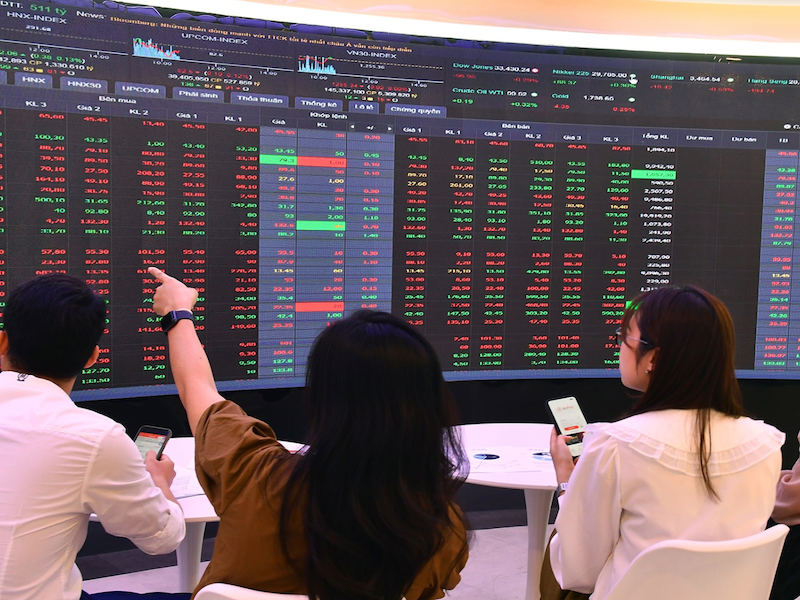Opportunity to attract $7.2 billion from stock market upgrade
If Vietnam's stock market can be upgraded by the end of 2025, we will have the potential to receive an annual capital flow of $7.2 billion into the market.
According to a World Bank research, if Vietnam upgrades its stock market, it might attract $7.2 billion in investment capital per year. This amount, as stated by Mr. Phan Le Thanh Long and the AFA Capital team of specialists, is pretty astounding.

There are always systems of investment funds that categorise markets across the world, including funds that focus on bordering markets like Vietnam's current situation. However, there are large-scale funds that solely invest in emerging markets. As a result, we are optimistic about modernizing in order to attract money from these huge investment firms. This has been one of the Vietnam Stock Exchange's strategic objectives since 2013.
There are now three organizations that update markets throughout the world, but Vietnam will largely focus on two of them: MSCI and FTSE Russell. In terms of the upgrading timeframe, Vietnam has been included in the list of newly developing markets to be examined by FTSE since 2018. Vietnam will adopt Decree 155/2020 on the clearing and settlement mechanism (CCP) in 2020. Preparations for decrees and rules to implement the 2019 Securities Law were made in 2021. Vietnam satisfied 7 of the 9 major requirements for FTSE's newest emerging market categorization in 2023, and 9 of the 18 criteria for MSCI.
According to AFA Capital, Vietnam still lacks roughly nine criteria, although only two of them are quantitative and required; the others are optional.
Each organization has its own set of criteria for rating. MSCI divides them into three categories: A (economic development), B (scale and liquidity), and C (market accessibility). Vietnam is primarily concerned with Group C requirements, notably foreign ownership limit s and payment and clearance.
Furthermore, the market's lack of adequate English documentation is a source of worry. Businesses must provide an English version of any information they provide to the market. Because the VND is not yet internationally traded, achieving a high level of flexibility in the Vietnamese foreign currency market will be difficult in the immediate future. This is not a serious worry, however, because the Chinese Yuan is not a freely convertible currency, therefore failing to fulfill this criteria is not a major issue.
Furthermore, because we lack a freely circulating capital market, all foreign exchange transactions must be tied to capital payments or import and export paperwork. As a result, we will simply cover the two most crucial elements.
First, there must be cooperation across sectors and authorisation from the State Bank, depending on the industry and the provisions of the Investment Law. Currently, certain industries are completely open to foreign investor ownership levels, while many are still limit ed, particularly in vital sectors like banking.
Second, pre-trade collateral requires investors to have 100% of their cash in their accounts at the time of placing orders. Only securities firms in Vietnam now engage in clearing and settlement with the Securities Depository Center. There are currently no depositary banks participating in these settlement rules. Pre-trade collateral is necessary when we acquire stock transactions from local investors to overseas investors.
This is required to differentiate between higher-level developing markets and bordering markets. To implement this criterion, the Vietnam Stock Exchange will need to provide a solid basis.
When securities firms create stock accounts for investors, they get hundreds, if not tens of thousands, of buy and sell orders, which are reconciled and settled with the Securities Depository and Clearing Center at the end of the day. However, as stated in Decree 155/2020, which legally defines settlement with a central clearinghouse, we require a complete settlement system.
This must be made a reality, which will need extensive collaboration between the Ministry of Finance, the State Securities Commission, and the State Bank. This also pertains to the trading infrastructure system, notably the KRX system, which has recently received a lot of attention. It is intended to introduce new trading and settlement alternatives to the Vietnamese stock market, such as T0 day trading, short selling, shorter settlement timeframes, and options contracts, opening the path for concerns such as central clearing to be resolved and infrastructure quality to be improved.

These are clearly two significant and required quantitative requirements. However, market upgrades are carried out by upgrading agencies; achieving these conditions does not guarantee an upgrade. As a result, we must comprehend MSCI's market rating methodology. Vietnam must first fulfill the requirements before proceeding with the rating procedure.
This procedure will take at least a year, which means that if Vietnam wishes to be upgraded by the end of 2025, the earliest it can do it is in 2024. We must first fulfill the requirements for inclusion on the watchlist before proceeding with additional stages.
If Vietnam achieves the Government's aim by the end of 2025, there will be reason for celebration. At that moment, we will have the chance to draw a $7.2 billion annual capital flow into the stock market.
In actuality, according to the most recent MSCI rating from June 2023, Vietnam is among the bordering markets with many areas that require development. MSCI's findings are similar to those made a year ago, including bottlenecks in foreign ownership, English documentation, the foreign exchange market, clearing and settlement, and foreign investor registration procedures.
Vietnam was placed on the FTSE Russell "watchlist" in September 2018, although there has been no meaningful progress. Among the critical challenges that regulatory agencies must address are: (1) establishing a central clearing and settlement center (CCP) - a critical point because both the FTSE and MSCI regard this as a bottleneck in market upgrading, (2) improving infrastructure quality, (3) perfecting policy mechanisms, (4) issues related to foreign ownership ratios, (5) enhancing activities to protect investors' rights, and (6) strengthening inspection, examination, and supervision activities.








